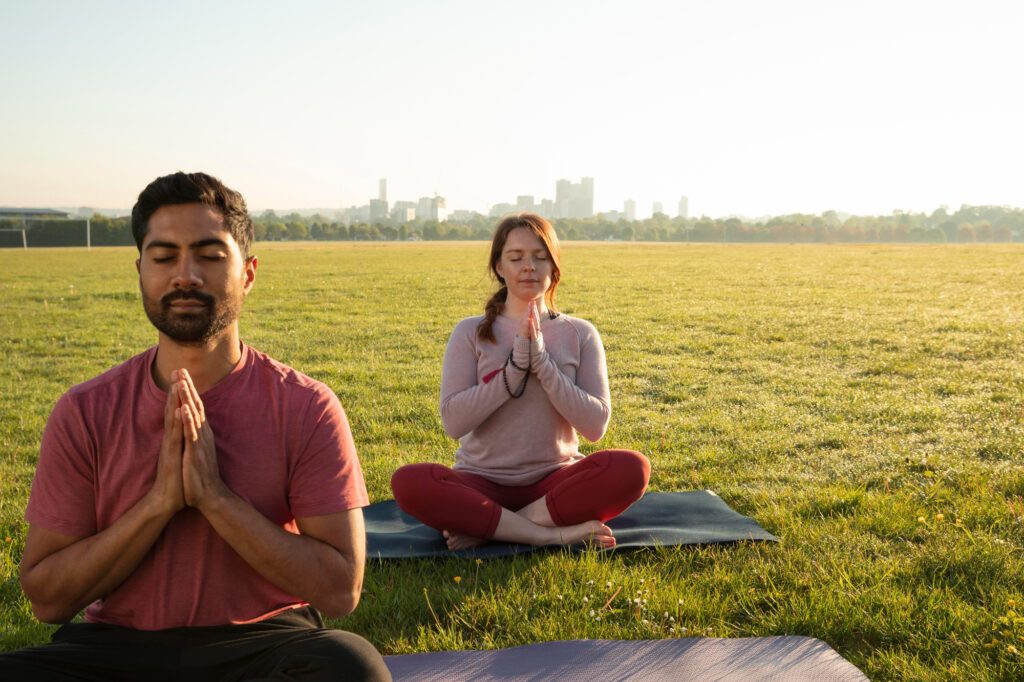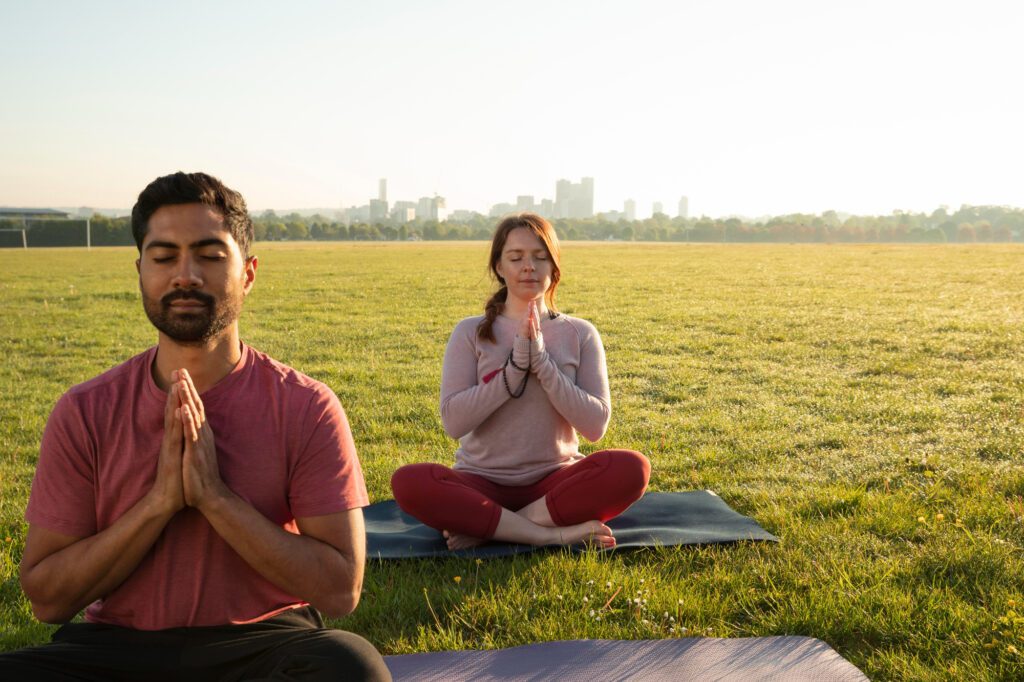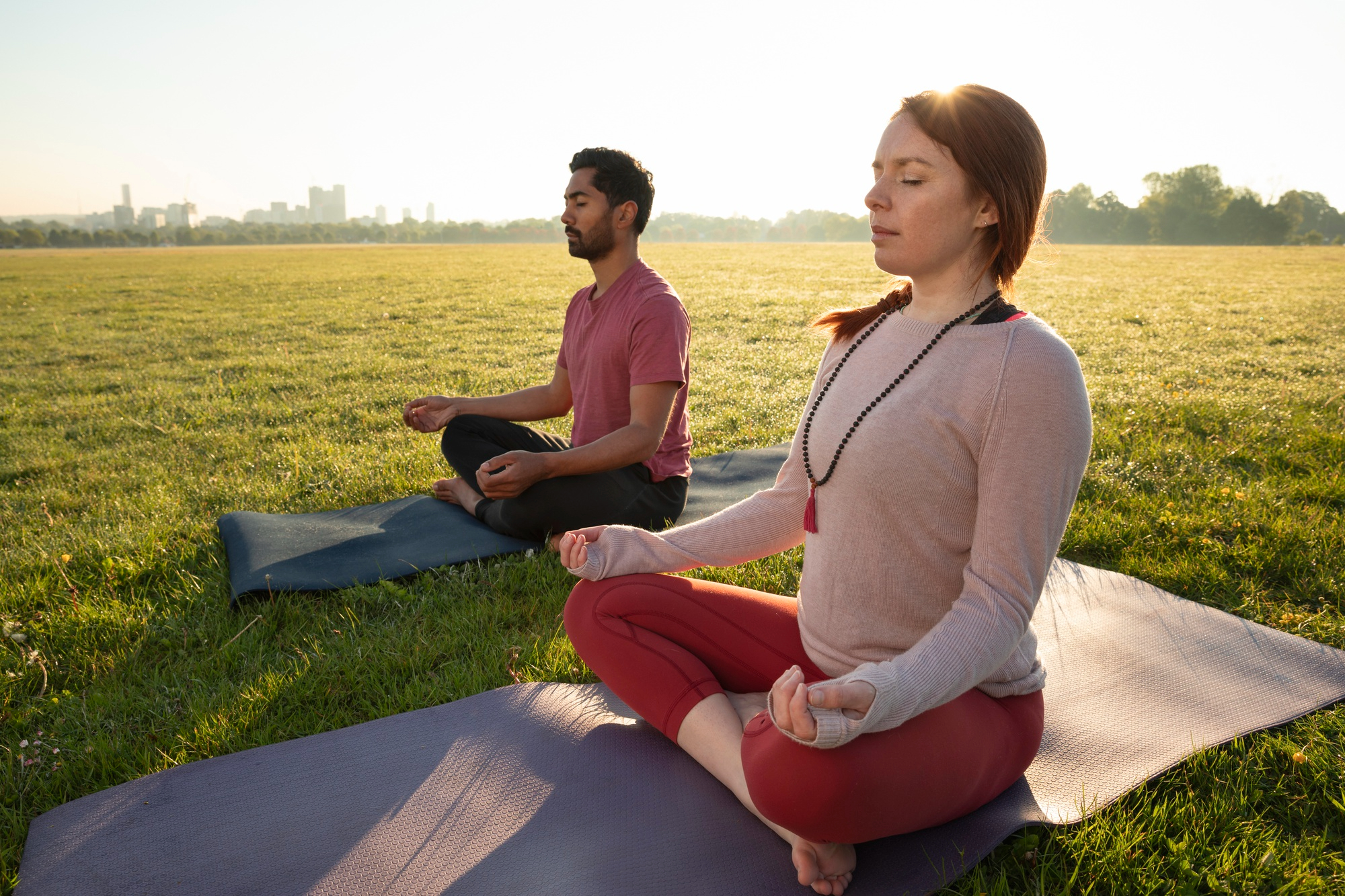It is more important than ever to take care of our mental health in our hectic and frequently demanding world. Exercises for mental health are a proactive way to improve and preserve our emotional and psychological equilibrium.
- These activities cover a range of techniques intended to increase mental resilience generally, lower stress levels, and encourage mindfulness. These activities enable people to develop a good and resilient mindset. They range from deep breathing and meditation to physical activity and artistic expression.
- This introduction will discuss the importance of mental health exercises and how implementing them into our daily routines can enhance our emotional health and result in a more contented, well-rounded life. Here we are sharing information on the topic “exercise for mental health benefits.”
exercise for mental health benefits

Exercise Types
Thankfully, there are lots of different kinds of exercise that can enhance mental well-being. Finding exercises you enjoy doing is crucial, whether it’s weightlifting or running. The following list of workout activities may be beneficial to mental health.
1. Yoga
- It might be easy or quite difficult. The most popular type of yoga, called hatha yoga, consists of breathing exercises, meditation sessions, and physical postures called asanas.
- Yoga is a low-risk approach to mental and physical recovery. The benefits frequently become apparent after just one lesson.
According to a 2018 study that was written up in Complementary Therapies in Clinical Practice, yoga can:
- Reduce your body’s level of arousal
- Reduce the heart rate
- Reduced arterial pressure
- Boost breathing and lessen the stress reaction
- Diminish anxiety and depression
- Boost your vitality and sense of wellbeing
2. Chi Gung
Tai Chi is a gentle, beautiful set of body motions and stances that blends meditation and rhythmic breathing. It is an ancient Chinese martial art (also called forms). Research has demonstrated that:
- lessen tension
- Reduced arterial pressure
- Lessen anxiety Enhance melancholy and boost self-esteem
3. Exercises for Aerobics
There is mounting evidence that regular aerobic activity, such as swimming, cycling, or running, improves psychological well-being.
While most research has been done on depression, anxiety disorders, and obsessive-compulsive disorder (OCD), there is some evidence that exercise may help with social anxiety as well.
Aerobic exercise programs, whether long-term or short-term, have been demonstrated to improve psychological well-being.
What are the advantages of exercise for mental health?
Muscle mass and aerobic capacity are not the only factors in exercise. Yes, exercise helps enhance your physical well-being and appearance, reduce your waist size, enhance your sexual life, and even lengthen your life. However, most people are not motivated to stay active because of that.
Regular exercisers typically do so because it greatly enhances their sense of well-being. They have a sharper memory, feel more rested and optimistic about their lives, and have more energy throughout the day. They also sleep better at night. It’s also an effective treatment for a variety of prevalent mental health issues.
Prior to Starting
It’s crucial to speak with your doctor when beginning a new fitness regimen to find out what kind of exercise and how intense it should be for your current physical state.
Your capacity to exercise may be impacted by your medical history, the prescription drugs you are currently taking, and any diagnosed diseases.
How to Begin an Exercise Program
Following your doctor’s clearance and advice, you should choose an exercise regimen that is appropriate for you.
Do you wish to enroll in a course? Would hiring a personal trainer at the gym be beneficial? Would you rather take a stroll at your own pace while enjoying your favorite tunes? Finding something you enjoy doing is the key to completing a program.
It’s common to feel really motivated when you first start a new fitness regimen. This workout inspiration can be quite helpful in getting you started on your new fitness regimen.
Here are some pointers to get your fitness regimen going and keep it going:
- Avoid going overboard. Avoid physically injuring yourself in the beginning by not pushing yourself too hard. Keep in mind that while exercise can be enjoyable and can assist with anxiety and mood, it shouldn’t be creating bodily problems. Start out slowly and build up your exercise regimen over time.
- Adhere to your fitness regimen with dedication. Everyone is busy, from frantic stay-at-home moms to stressed-out executives. Making time for exercise is a sign that you value your health and wellbeing highly.
- It can take some time before your symptoms start to get better. Keep up your fitness regimen with patience and consistency for the best outcomes.
- Recognize that, as you progress through your fitness program, your motivation may shift. It is normal for your early zeal to wane over time. Adding a little variation to your program or
Exploring new fitness options might be beneficial. - For instance, consider walking in your neighborhood or joining a hiking club if you’re tired of using the treadmill at the neighborhood gym. Using these substitutes can also help you socialize with others while working out.
- Continue your experiments. Try out several tactics to see which one suits you the best. Try exercising in the afternoon if you find it difficult to maintain your fitness routine first thing in the morning. If you find that you detest going to the gym, consider working out outside.

FAQ
Does exercise improve mental function?
Answer: It helps lessen anxiety or despair and enhance memory. Engaging in regular physical activity can help lower your chance of dementia and other forms of cognitive decline. According to one study, people who are inactive have cognitive deterioration nearly twice as frequently as those who are active.
Can exercise reduce mental stress?
Answer: Almost any type of exercise can be used as a stress reliever. Being active helps you release feel-good endorphins and take your mind off of the worries you face every day.
How do you relax your mind?
Answer: Just moving away from something stressful for a few minutes or taking time away from your typical routines and thoughts can offer you enough space and distance to feel calmer. Even for a short while, spend some time reading a book or a magazine. Take a bath, watch a movie, interact with a pet, or give a new recipe a try.
How important is mental health?
Answer: Our emotional, psychological, and social well-being are all parts of our mental health. It influences our feelings, thoughts, and behaviours. It also influences how we respond to stress, interact with people, and make wise decisions. Every stage of life, from infancy and adolescence to maturity, is critical for mental health.
Conclusion
In summary, the significant influence that physical activity has on mental well-being is immeasurable. Regular physical activity has been shown to be an effective strategy for fostering psychological resilience and emotional well-being. Beyond just improving physical fitness, exercise has many other positive effects, such as lowering stress and anxiety, elevating mood, and improving cognitive performance.
It is becoming more and more important to include mental health activities in our routines as we negotiate the obstacles of modern living. Exercises that promote mindfulness, physical activity, or artistic expression offer a comprehensive method of preserving mental well-being.
So, this is how the topic “exercise for mental health benefits” has been addressed. for more information related to this topic,
Thank you…







[…] more information related to mental health, Click here. You may also visit our Instagram page by Clicking […]